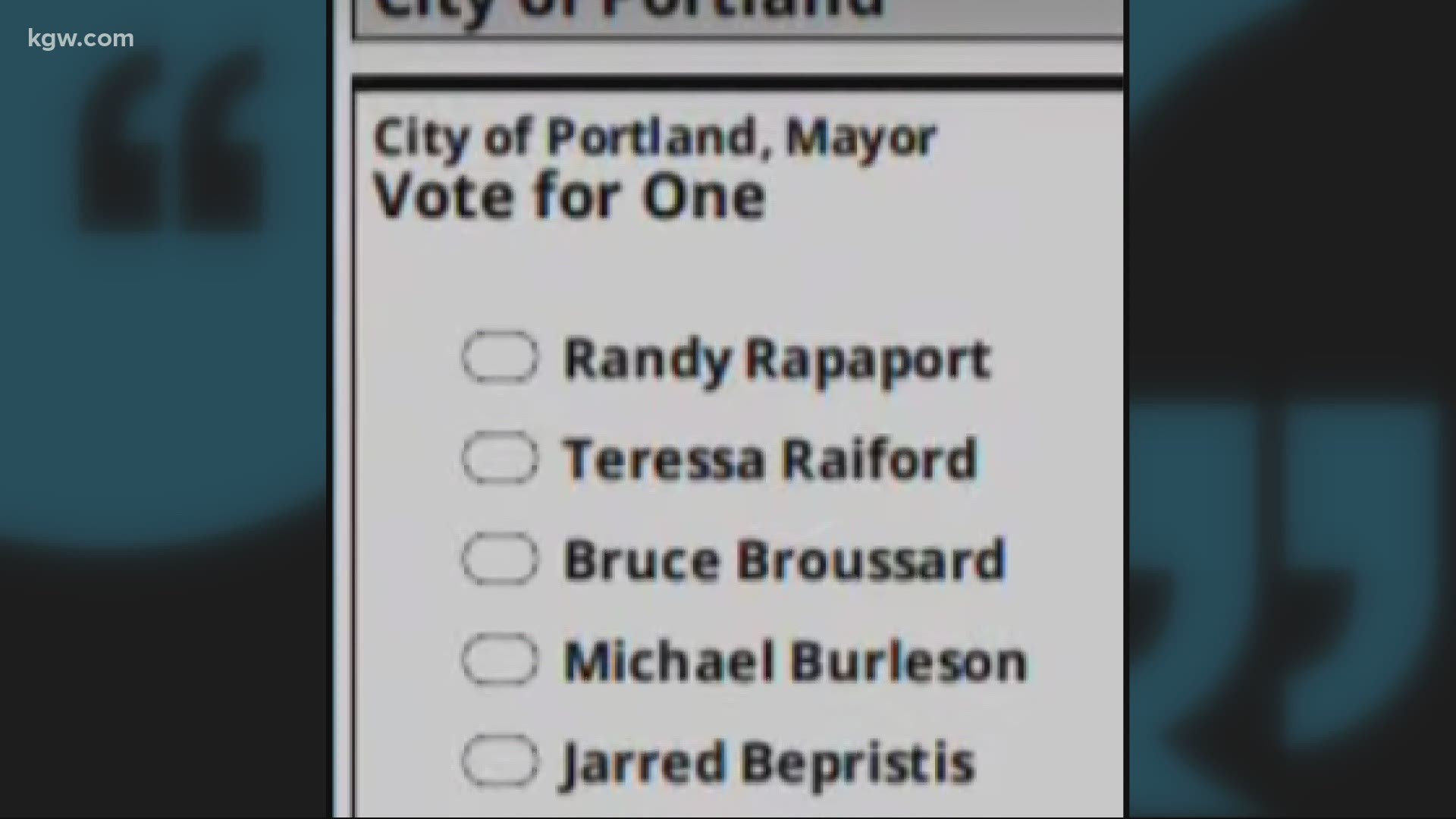PORTLAND, Ore. — This election season, ranked-choice voting, or “RCV,” debuted in Oregon, in Benton County’s commissioner races, and ballot measures to implement RCV were passed in cities across the country.
This voting system allows voters to rank their candidates by preference when there are three or more names on the ballot.
If no one candidate has a clear majority, the least-preferred candidate will be eliminated, and those votes will be reallocated to the voters' second choice candidate. This process continues until one candidate has over 50% of the votes.
In a time of political polarization, RCV has become increasingly attractive as a means of building consensus and electing candidates that are most acceptable to the widest number of people.
In Benton County’s two county commissioner races, both Democratic candidates — Xan Augerot and Nancy Wyse — won a clear majority of the votes, so there was no need to identify voters’ second preferences.
State Rep. Dan Rayfield, who championed RCV in Benton County, said that even though voters' second preferences did not come into play this time, this voting system gives elected officials a way to better understand their electorates.
“The mere fact of having ranked-choice voting really gives elected officials the ability to see where the voters are at, like with the values of what they like to see reflected in their government,” he said.
According to Rayfield, the new system encouraged more diverse candidates to enter the races without worrying about spoiling the vote for other candidates.
Libertarian, Pacific Green and Progressive party nominees were on the county’s ballot. And in the county commissioner position 2, the Pacific Green Party candidate won nearly 10% of the vote, compared to the Democrat’s 59% and the Republican’s 31%.
Critics of RCV say that the system could confuse voters and make them do more research. But Rayfield said that, in Benton County, voters understood the system and enjoyed the freedom.
“Voters feel like they have more choices and power in the system,” he said.
This is the county’s first implementation of the recently passed Measure 2-100, which installed RCV for county races by a 54.18 to 44.82% margin in 2016. RCV will be used next in Benton County’s 2022 commissioner races.
Rayfield and attorney Blair Bobier co-petitioned the measure in Benton County.
“We wanted to have a local example of what it could look like in Oregon and get other folks in Oregon excited about it,” Rayfield said.
Rayfield and Bobier hope to expand RCV to local and municipal races in Benton County and put forth statewide measures in the 2021 legislative session.
They are currently working with communities and organizations, like Next Up Oregon and the Northwest Public Health Foundation, to reach common ground on voting solutions.
“We don't want to force a solution on an electorate or communities that aren't necessarily excited about it,” Rayfield said.
They could potentially try to implement RCV in party primaries in Oregon, where candidates often win by less than 50%.
They are also interested in applying RCV to statewide nonpartisan races, which typically have low turnouts in the primary and could instead be shifted to general elections where voters list their preferences.
Rank choice is used on the federal level in only one state — Maine — but is used on the local level in cities like San Francisco; Cambridge, Mass. and St. Paul, Minn. RCV will be implemented with New York City’s local elections in 2021, and it has been championed by candidates like Andrew Yang and Elizabeth Warren.
This election season, Massachusetts voters rejected a ballot initiative that would have implemented RCV in the state. And in Alaska, with absentee votes still being counted, the jury is still out on a measure to implement RCV on the federal level.
But, different versions of RCV were passed in cities across the country: Albany and Eureka, California; Boulder, Colorado; and Bloomington and Minnetonka, Minnesota. RCV will be implemented in the cities for various local elections.
Versions of this system are used on the national level in Australia, Ireland, Malta and Papua New Guinea. But, in the U.S., this kind of voting has historically gained traction in times of political polarization and fragmentation.
Rayfield said this voting system is a potential way to build trust in the electoral process.
“When you're electing folks with less than 50% of the vote and you have what we would typically call spoiler candidates, that erodes that trust in the system,” Rayfield said. “The more that we can empower folks within our system, give them more choices, more control, I think that is how we start strengthening the foundation of democracy.”

